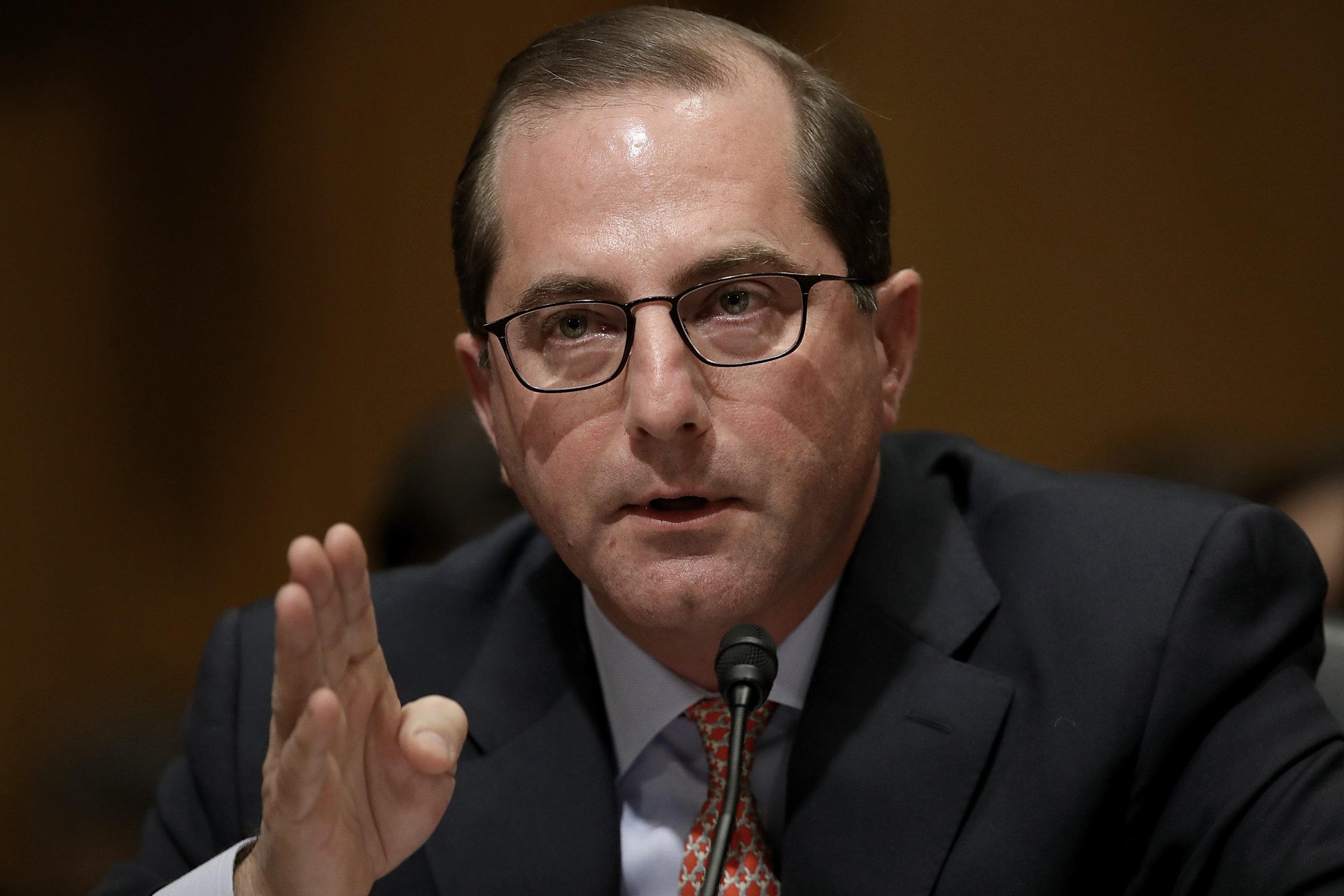
A federal judge heard legal challenges Thursday to a Trump Administration policy that allows states to implement work requirements in order for residents to qualify for Medicaid.
U.S. District Judge James Boasberg heard oral arguments in two separate cases challenging plans in Arkansas and Kentucky that require Medicaid enrollees to either have a job or meet “community engagement” requirements to receive their health benefits.
The cases are important tests for what Republicans have touted as a conservative health-care experiment and could have major implications for how low-income Americans access healthcare in the coming years.
Arkansas was the first state to implement the new Medicaid work requirements last year, and the process did not go smoothly. The state has drawn significant criticism after more than 18,000 people lost their health coverage for failing to comply with the requirements or failing to officially report their compliance.
Kentucky has not yet put the requirements in effect because Boasberg actually struck down the state’s plan last June. At the time, Boasberg, an Obama appointee, said the Trump Administration’s approval of Kentucky’s plan was “arbitrary and capricious” because it did not adequately consider the impact of the work requirements or whether they would “help the state furnish medical assistance to its citizens, a central objective of Medicaid.”
Kentucky has since filed a new waiver application to implement work requirements and the Trump Administration approved it again.
But the key question remains: Does requiring Medicaid recipients to work or volunteer serve the objective of Medicaid as a “medical assistance” program?
Many health care advocates have said no, that these requirements go against Medicaid’s purpose because they have led to people losing their health insurance coverage. The lawyers challenging each of the Arkansas and the Kentucky plans agree, and have argued that the work requirements violate federal law.
“The approved amendment undermines — instead of bolsters — access to Medicaid services,” Kevin De Liban, an attorney at Legal Aid of Arkansas who is representing the group of enrollees challenging the Arkansas work requirement, said in a statement on Thursday. “Medicaid helps people stay healthy enough to work. Therefore, it does not make any sense to make people jump through needless and costly hoops when they are often already working or trying to take care of family members.”
The Trump Administration and the states hoping to implement Medicaid work requirements disagree. The Department of Health and Human Services has approved work requirements for seven states so far, though just three have implemented them. Officials claim that the requirements will help improve people’s economic situations and that will improve their health — despite research showing that most Medicaid recipients already work or have reasons they would not be expected to do so.
Health advocates aren’t the only ones skeptical of the work requirements. After seeing the large losses of coverage in Arkansas last fall, the nonpartisan commission that oversees Medicaid sent a letter to HHS in November asking it to temporarily stop Arkansas’s work requirements until the agency could help enrollees comply.
Arkansas did add an option for enrollees to report their work or volunteer hours by phone (they initially could only do so online), but the work requirements have continued this year.
Still others have doubts. After President Donald Trump’s budget this week proposed adding work requirements nationwide, Health and Human Services Secretary Alex Azar told lawmakers on Tuesday that his agency “does not yet have data” as to why people fell off Medicaid in Arkansas after the work requirements were put in place.
In a recent congressional hearing, Massachusetts Democrat Rep. Joe Kennedy pressed Azar in a tense exchange about why the Administration wanted to expand work requirements without data, and Azar’s answers did not seem to satisfy him.
“In your agency’s budget you propose implementing mandatory work requirements for Medicaid beneficiaries, not knowing what the impact will be, across every single state,” Kennedy said. “You just said you’re not sure why people are losing it, yet you want to extend that to every single state. Where’s the logic in that?”
While Judge Boasberg has seemed similarly skeptical in the past, the situations have high stakes for those around the country, and even more immediately, for Medicaid recipients in Arkansas and Kentucky. In Kentucky, Gov. Matt Bevin has filed an executive order saying his state will end Medicaid expansion entirely if the court blocks Kentucky’s work requirements again.
And under Arkansas’s current work requirements, people can lose coverage if they fail to comply (or report their compliance) for three months in one year. That means if there’s no decision by April — or if the requirements stay in place — more people will likely lose their Medicaid coverage at the end of this month.
More Must-Reads from TIME
- Cybersecurity Experts Are Sounding the Alarm on DOGE
- Meet the 2025 Women of the Year
- The Harsh Truth About Disability Inclusion
- Why Do More Young Adults Have Cancer?
- Colman Domingo Leads With Radical Love
- How to Get Better at Doing Things Alone
- Michelle Zauner Stares Down the Darkness
Write to Abigail Abrams at abigail.abrams@time.com